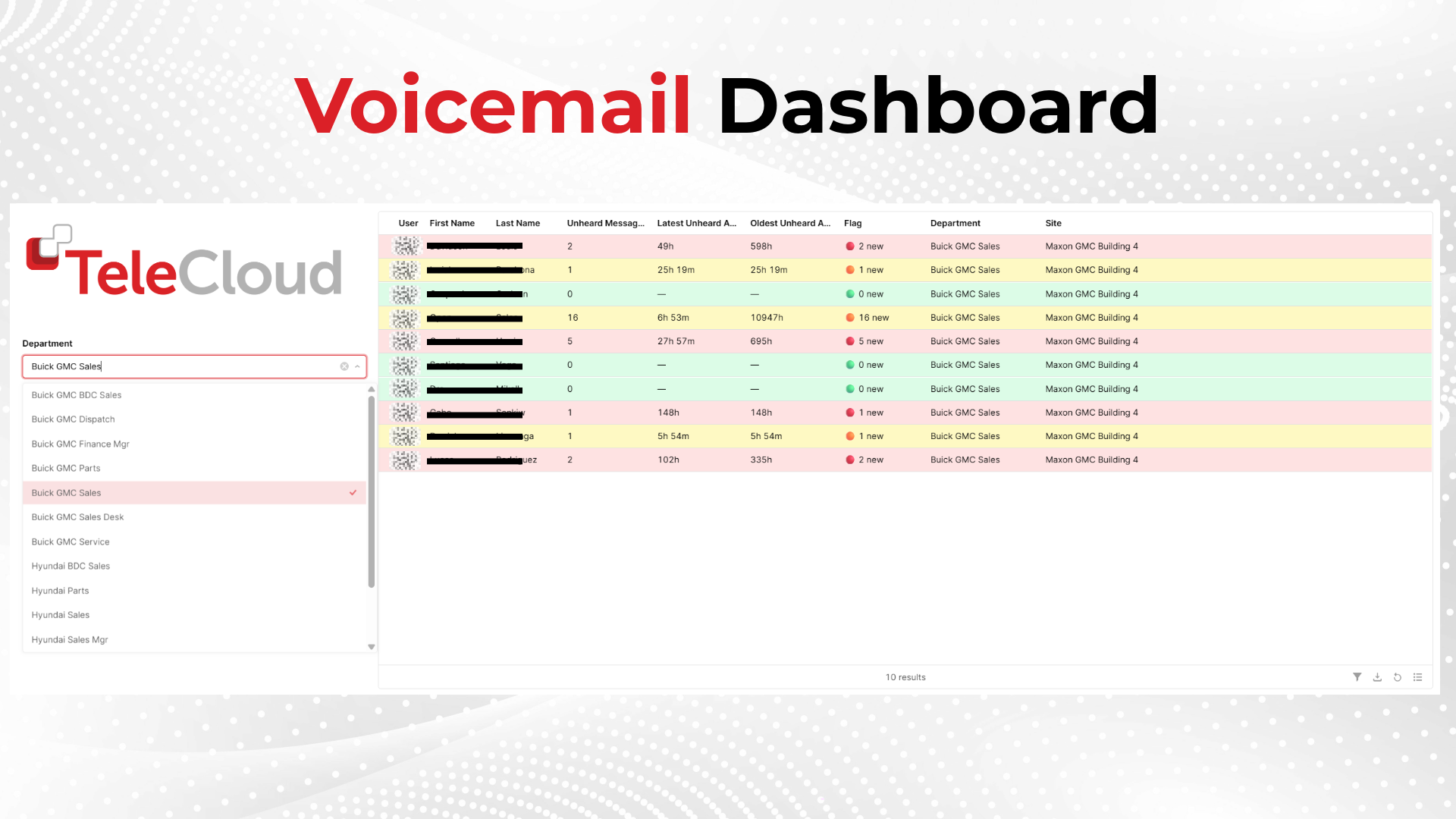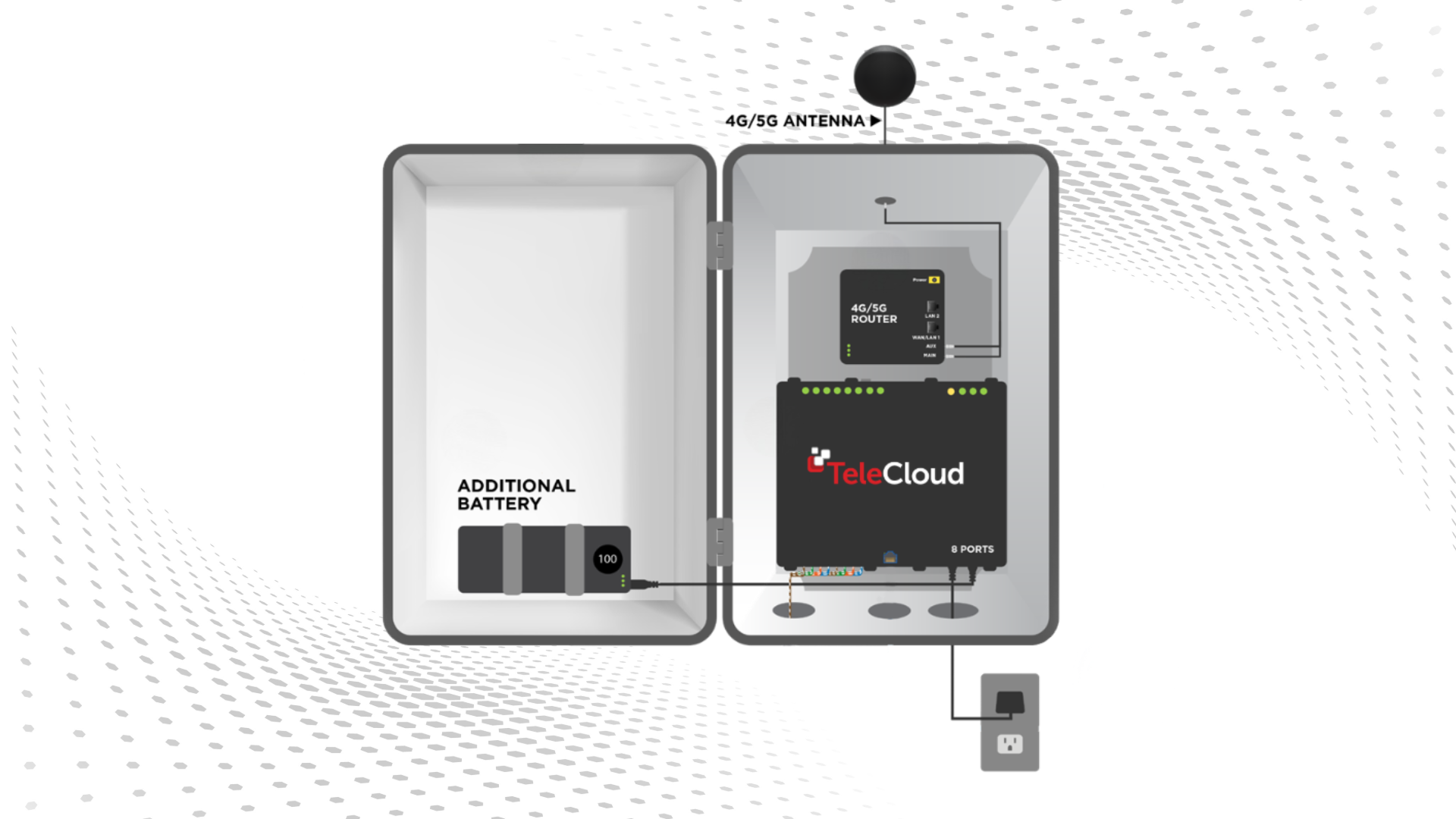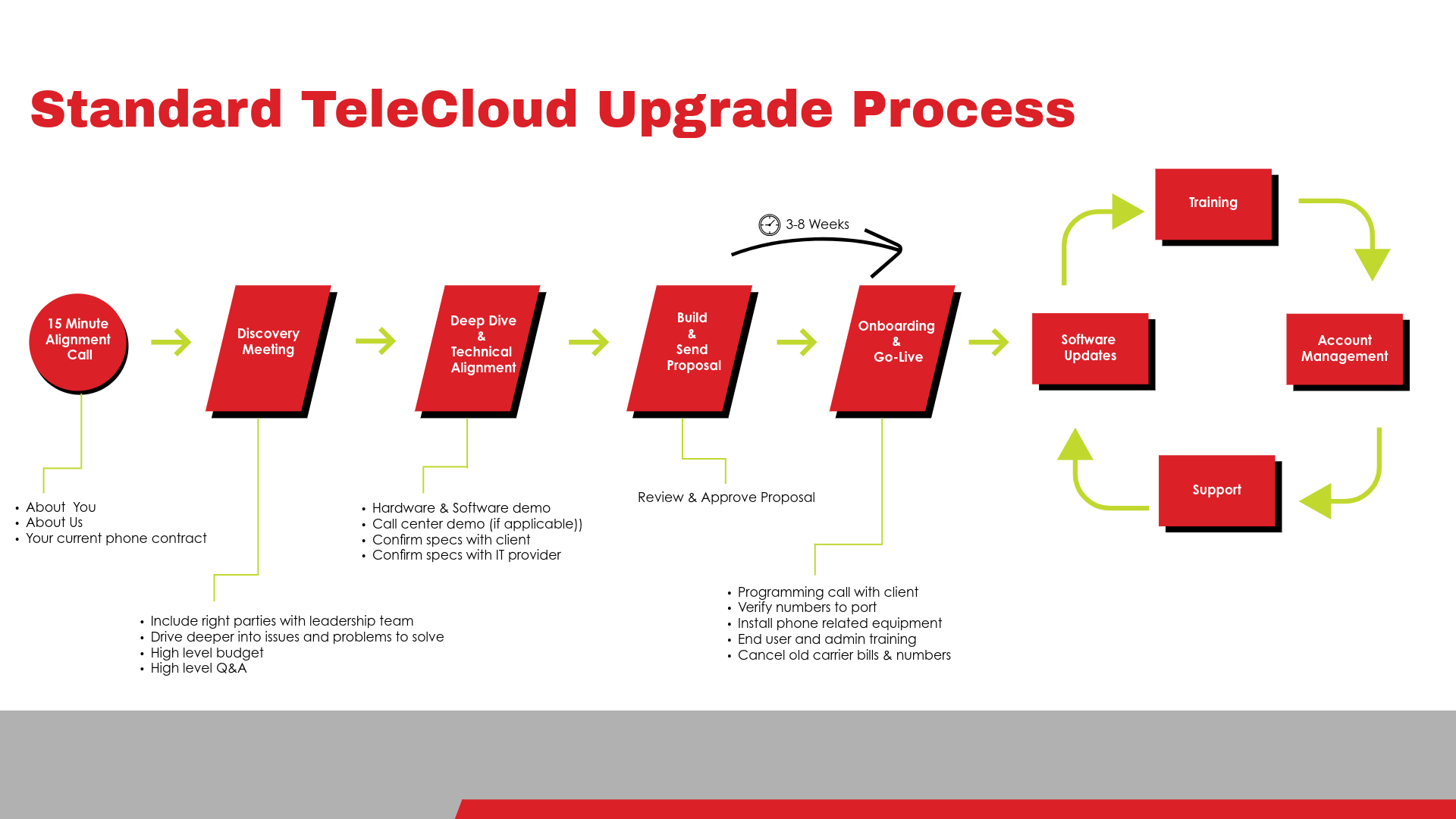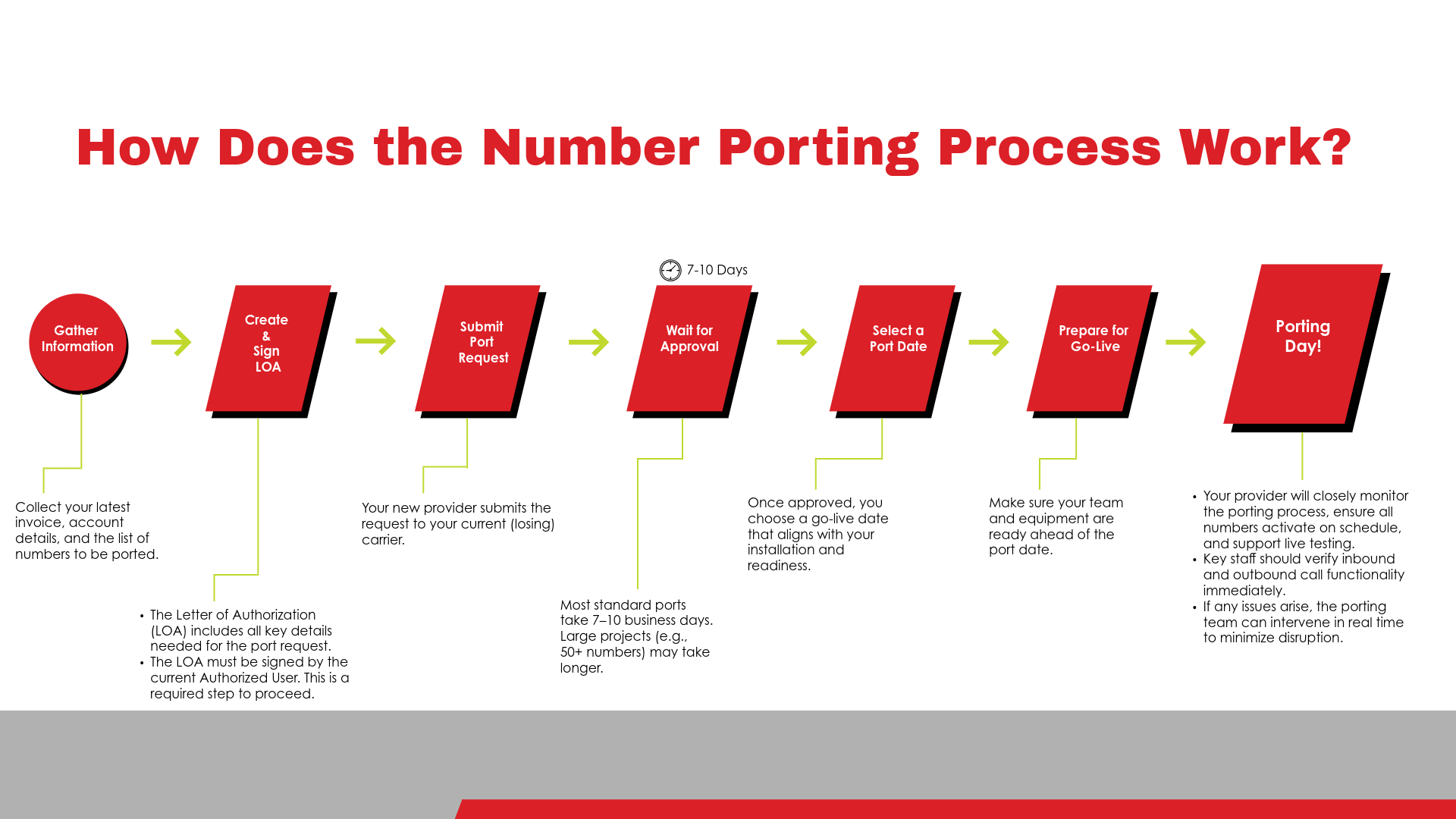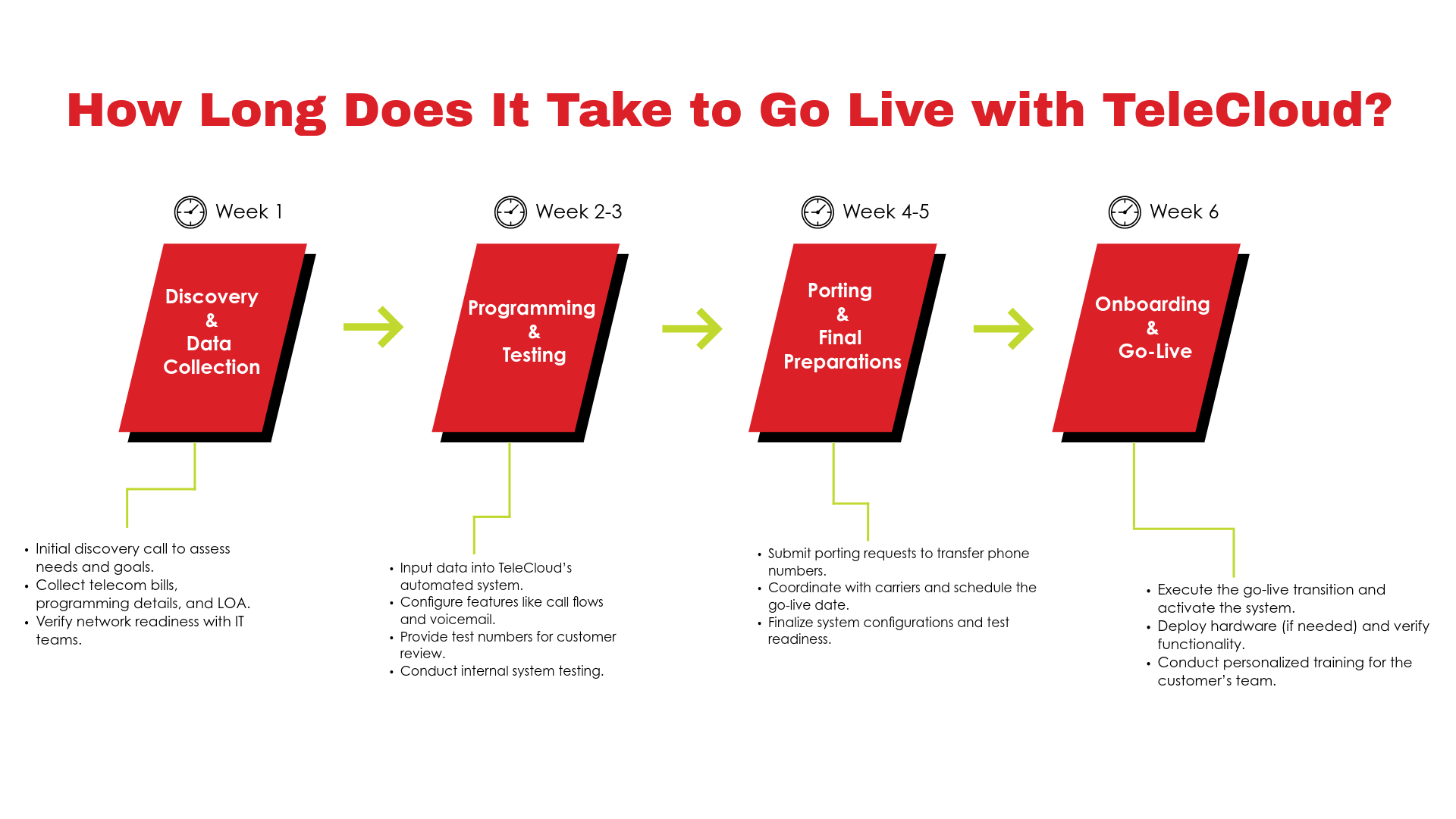What is a VoIP phone system? Simple Guide
Updated: May 14th, 2025 | Published: March 2nd, 2016
6 min read

Let’s cut through the buzzwords and break down VoIP in plain English. If you’re a business owner, office manager, or IT leader exploring alternatives to traditional phone systems, chances are you've asked:
“What is VoIP and is it right for my business?”
You're not alone. The internet is flooded with overly technical explanations and buzzword-heavy articles that can make VoIP seem complicated or overwhelming. But it doesn't have to be.
At TeleCloud, we’ve helped hundreds of businesses, from small offices to multi-location enterprises, modernize their communications with VoIP. We’re experts in making these systems not just work, but work smarter for your day-to-day operations.
By the end of this guide, you’ll understand what VoIP is, how it compares to traditional systems, and whether it’s the right solution to improve flexibility, lower costs, and support your business long term.
So, What is a VoIP Phone System?
VoIP (Voice over Internet Protocol) is a modern phone system that routes calls over your internet connection, instead of using traditional copper lines or T1 circuits. Think of it like this: just as you stream your music and movies over the internet, you can now stream your voice in real-time too.
Here's how it works behind the scenes: when you speak into a VoIP-enabled device, your voice is converted into digital data packets. These packets are then transmitted over your business internet connection, managed by a VoIP server, and reassembled on the other end to deliver clear, real-time communication. This method allows for more efficient use of bandwidth, better scalability, and access to advanced call features that aren't possible with legacy systems.
VoIP systems can be fully cloud-based or hosted in secure off-site data centers, and even hybrid versions exist. These systems eliminate the need for bulky on-premise phone equipment. You’re no longer tied to one physical location. Even if you choose a premise-based VoIP solution, many have built-in cloud redundancy and failover features for added reliability.
Why Do Businesses Love VoIP?
Because VoIP opens the door to major advantages that traditional systems can’t match:
- Reduced Hardware Dependence: Say goodbye to bulky equipment and tangled cords. Cloud-hosted VoIP solutions eliminate the need for expensive, maintenance-heavy hardware on-site.
- Fewer Lines, Lower Bills: Traditional systems require separate physical lines for each call path. VoIP systems route all calls over your internet connection, resulting in fewer resources used and lower monthly bills.
- More Features, Built-In: With VoIP, you're not paying extra for basic business necessities. Get voicemail-to-email, mobile apps, call analytics, auto attendants, CRM integration, and more often all included in your monthly plan.
- Seamless Scalability: Whether you’re adding a few team members or opening a new location, VoIP makes it easy to scale without complex rewiring or expensive upgrades.
- Location Flexibility: VoIP isn’t tied to a physical address. Your team can make and receive calls from anywhere, which is a game-changer for hybrid workforces.
VoIP is to business phones what smartphones were to flip phones: smarter, faster, and built for today’s mobile, connected, always-on business world.

Why Businesses Still Use Traditional Phone Systems
The truth? Most of the time it’s just habit. We understand your current phone system was paid off years ago and still “works.” But that doesn’t mean it’s serving your business well.
Most legacy systems are aging, lack modern features, and require expensive proprietary support. Brands like Avaya, Nortel, Toshiba, and Panasonic often demand specialized maintenance. Worse, these systems are often incompatible with today’s mobile and remote-first work environments.
Hanging onto older systems can seem like the safe move, but it often leads to greater long-term costs, from unexpected outages during critical customer calls to rising repair bills for aging hardware and missed business opportunities caused by limited remote flexibility. These disruptions and limitations add up, creating service gaps, unnecessary expenses, and reduced responsiveness when your team needs it most.
A Quick Breakdown of Premise-Based Phone Systems:
- Digital Systems: Use digital phones. Reliable, but outdated tech.
- Hybrid Systems: Mix digital and IP phones, allowing limited flexibility.
- IP Systems: Use IP phones and support VoIP lines, but still require on-site equipment.
While they’ve worked well in the past, these systems tend to cause the most headaches in terms of service issues, inflexible features, slow updates, and limited integration with today’s tools and platforms.
What Are the Real Benefits of VoIP in 2025?
These features aren’t just nice-to-haves; they address real business challenges like rising costs, increasing mobility, and the need for greater operational visibility. VoIP delivers the kind of control, flexibility, and intelligence that modern teams demand.?
Let’s talk about what really matters to you and your business:
- Lower Monthly Costs: Say goodbye to separate line charges and costly long-distance fees. VoIP systems typically offer flat-rate pricing models that include local and long-distance calling, helping businesses predict and control monthly expenses.
- Built-In Redundancy: With VoIP, you're not dependent on a single line or location. Built-in failover options—like call forwarding to mobile devices or alternate locations—ensure continuity even during internet or power outages.
- Remote Work Ready: VoIP makes hybrid and remote work simple. Staff can make and receive calls using their office number from a smartphone, laptop, or softphone, maintaining professionalism and continuity from anywhere.
- Easy Support & Maintenance: Traditional systems require technicians for basic updates. VoIP platforms include intuitive admin portals, allowing businesses to make changes, add users, or re-route calls without waiting for a technician.
- Advanced Features: Modern VoIP solutions come packed with business-enhancing tools: call queues, auto attendants, call recording, voicemail-to-email, SMS, mobile apps, and seamless CRM integrations.
- Detailed Analytics: VoIP platforms give management insights into team performance with real-time call data, helping businesses make smarter staffing and workflow decisions.
- Future-Proofing: VoIP scales easily with your growth. Add lines or users without hardware upgrades. And because updates are delivered through the cloud, your system continually evolves with new features and security improvements.
In a world where flexibility, uptime, and insight drive performance, VoIP isn’t just an upgrade; it’s a business advantage. From cost control to empowering remote teams, the right VoIP system makes your communications smarter and more resilient.

VoIP and Security: How Your Data and Calls Stay Protected
Security is top-of-mind for any business decision-maker and VoIP systems are designed with that in mind. Modern VoIP platforms include encrypted call data, secure protocols (like SRTP and TLS), and access controls to prevent unauthorized use. Many providers, including TeleCloud, also offer solutions that comply with industry regulations such as HIPAA, PCI-DSS, and GDPR. With the right provider, your VoIP system is just as secure and often more flexible than traditional systems.
Is VoIP Right for Every Business?
VoIP is a great fit for most businesses, especially those looking to reduce costs, support remote work, or simplify their communications. It’s ideal for growing teams, multi-location operations, customer service hubs, and any organization that values flexibility.
However, VoIP may not be the best fit if your internet service is unreliable, or if you operate in a location without stable broadband infrastructure. In these cases, a hybrid solution or on-premises system with VoIP features may be a better choice. Our team helps evaluate these scenarios and guide you to the best-fit solution.
A Smarter Way to Communicate
A VoIP system is more than just a phone upgrade; it’s a modern business tool designed to improve the way your team connects, collaborates, and serves your customers. By shifting from outdated lines and costly maintenance to cloud-powered, feature-rich communication, you not only reduce costs, you unlock new levels of agility and visibility, such as faster team responsiveness, real-time call monitoring, and insights that help you optimize performance across departments.
VoIP is flexible, scalable, mobile-friendly and most importantly, built for how modern businesses operate and grow.
If your current phone system is holding you back or costing you more than it should, it’s time to explore something better. Whether you need to support a remote team, scale locations, or streamline your tech stack, VoIP gives you the freedom to do it all.
Let’s find the right fit for your business. Schedule a free discovery call today and see how simple, powerful, and cost-effective your phone system can be.
Commonly Asked VoIP Questions
Can I still use a desk phone?
Absolutely. Most businesses still use IP desk phones, which are modern versions of traditional phones that are familiar and easy to use. But now, you also have the option to make calls from your computer or mobile device with the same number. Read More
Will I save money?
Yes. Most VoIP users reduce costs significantly. You avoid long-distance fees, cut out costly maintenance contracts, and often get more features for one flat rate.
How does support work?
VoIP systems can be supported remotely, so updates or changes like adding users or changing call flows are quick and easy, no waiting on a tech to show up.
What if I’m not in the office?
You’re still fully connected. Whether you’re at home, traveling, or working from a coffee shop, VoIP lets you take and manage calls from any device with an internet connection.
What if my internet goes down?
Most VoIP systems include call failover to mobile devices or alternate locations, so you never miss a call, even during an outage. Read More
 By Vincent Finaldi
By Vincent Finaldi
Vice-President, TeleCloud
E-mail: vin@telecloud.net | Direct Line: (908) 378-1218
What brings me satisfaction is meeting with New Jersey–based businesses and genuinely helping them solve communication and business problems. As someone who has lived in New Jersey my entire life, I love working and playing here. I live in Morristown with my wife, Lisa, and root for the New York Giants.
damon@telecloud.net
Topics:





